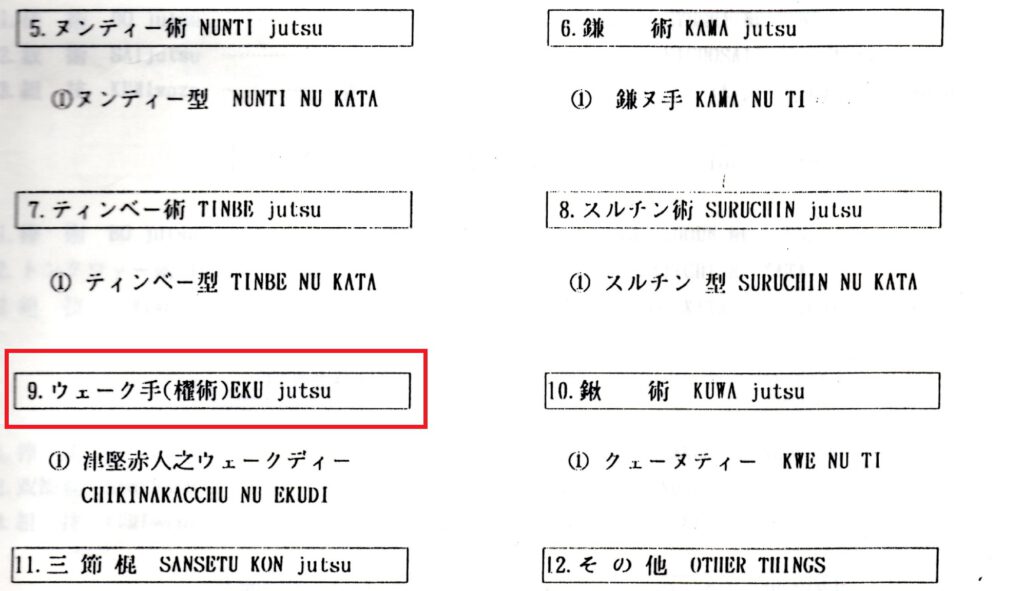The paddle is one of the weapons used in Okinawa Kobudō. It refers to a two-handed paddle used to propel a small boat. While used by fishermen since ancient times, it has also been used as a weapon on occasion. While it is generally used much like the bō, it also includes techniques specific to it, such as cutting with the blade or flinging sand at the opponent. When swung it accelerates and increases destructive power. For instance, there is a well-known story of Miyamoto Musashi, who in a duel in 1612 used a paddle carved into a sword in a duel on Ganryu Island. The reason he did this was that the paddel was longer than a regular sword, and in particular it was longer then his opponent’s sword, which was known to be unsually long. This said, besides the variety of its techniques, its huge destructive power, and the “cutting egde,” one of the greatest advantages of the paddle is its length. This is important to note since paddles used in modern kobudō seem to get shorter, smaller, and lighter by the year.
In Japanese, the paddle is simply called kai 櫂, but Okinawa has its own word for paddles, and even that word comes with a number of deviations. Most often it is called uēku ウェーク, iēku イェーク, or ēku エーク, and the difference might actually be bigger in writing than in actual pronunciation.
It should be noted though that different schools of kobudō in Okinawa traditionally use different variants of the name, and this sometimes leads to confusion as regards which is the right way to pronounce it. Well, they are all correct, it is simply a matter of choice.
For instance, in a 1977 publication, based on information provided by Matayoshi Shinpō, the term kaijutsu is followed by the name iēku-dī in brackets. In a 1990s pamphlet published by the “All Okinawa Kobudō Federation” and the Kōdōkan is found uēku-dī followed by kaijutsu in brackets, and with the romanized form of “EKU jutsu” added to it. And in a 1999 pamphlet of the “All Okinawa Kobudō Federation” and the Kōdōkan the word ēku-dī is used. On the internet, too, on Japanese pages mostly ēku is used, and sometimes uēku, while on Western pages mostly eku is used and sometimes ueku.
So the above variations are all correct. It is just, you should chose one version and use it consistantly so as to not confuse people.
© 2022, Andreas Quast. All rights reserved.

